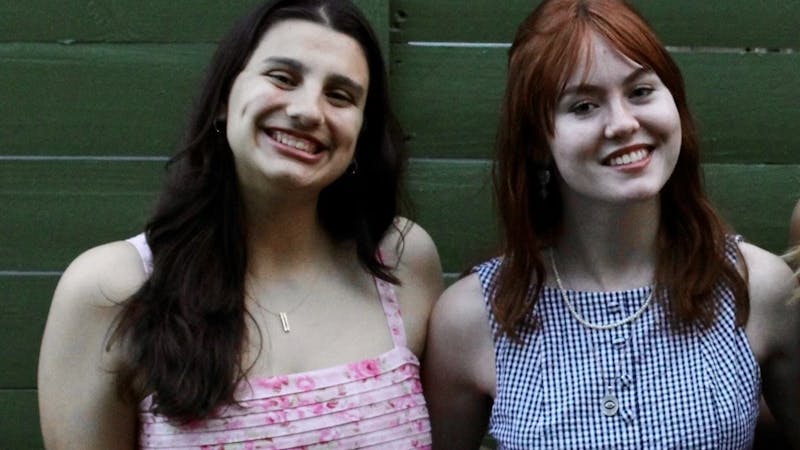Peers and professors can work to prevent imposter syndrome

Imposter syndrome — that deep sinking feeling that hits when you feel way out of your league, accompanied by cold sweat and anxiety. The first time I felt imposter syndrome was during O-Week, when my peers talked confidently about their four-year plans and career paths. I’ve gone on to feel it almost every day of my Rice career, and studies prove that I’m not the only one.
Missing from these discussions is the acknowledgement that imposter syndrome is a two-way street — there are both affected populations and their effectors. Although imposter syndrome can certainly be triggered solely through internal doubt, it’s often caused by a hostile environment or a negative interaction. In addition to developing methods of personalized coping, we should also talk about factors in our classroom environment or peer-to-peer interactions that can perpetuate or add to imposter syndrome.
First is the classroom, where nearly unbearable stretches of silence sometimes feel more bearable than the potential of getting roasted by your professor. Professors can make students feel like imposters by coldly dismissing incorrect answers or by tearing apart “stupid” questions. Even more subtle signaling, such as ignoring raised hands or making passive-aggressive comments about student opinions (“Some think this exam was too difficult…”), can have harmful impacts. Things thought of as anonymous, such as test answers or class evaluations, are regularly posted as part of lecture as a teachable lesson — just another part of class to get through. The result is familiar: Herzstein Amphitheater filled to the brim with 300 students, and only two of them ever raise their hand.
Second is peer-to-peer interactions. Comparisons are inevitable in collaborative study groups, and overheard conversations on campus often revolve around academics. With those conversations come casual comments like “That project was so easy — it only took me an hour” or “Who got the low score on this exam? Can you imagine?” Ironically, many of these statements stem from the vicious cycle of imposter syndrome: to feel less like an imposter, some put on a false impression of high performance to reassure themselves of their place.
“Political correctness culture” might be easy to mock, but it’s even easier to be considerate of those around you by remembering that your seemingly harmless comments can affect those around you. In particular, marginalized populations at college suffer from imposter syndrome at greater rates — on top of their own self-doubt about their ability and the feeling of being alone in class, these populations have to deal with such comparative, scornful rhetoric regularly.
As a community, we can do better to ensure that we do not act as effectors of imposter syndrome. In the classroom, professors should encourage healthy discourse, making sure to acknowledge viewpoints or professionally correct errors. Avenues like Piazza, which allow for anonymous questions, are valuable for the students who otherwise are disinclined to speak in class. As peers, we should consider the impact of our throwaway statements before we say them. Instead of making absolute statements on the difficulty of tests or projects, we can speak about academics in the collaborative fashion that Rice is so well-known for — for example, “What’d you think of the project? Wish I could’ve worked with you on it; it was tough.” While the behaviors of individual professors might feel out of your control, speaking with care and empathy is not.
Certainly, as an individual affected by imposter syndrome, I’ve adopted power poses and a thick skin — it would be hard to get through the day if I didn’t.
But even as I’ve played my part in mitigating my own feelings of ineptitude, it’s time for everyone else to step up — for those who feel imposter syndrome long before they step foot on campus, or who just want to try something new without feeling out of place.
More from The Rice Thresher

Letter from the editors’ desk: Journalism is a community practice
First of all, we want to thank y’all for picking up the paper, reading our stories and answering our questions all the time. We want to inform students, staff and the community about what is happening at Rice, and the only way to do that is by hearing from you. Talk to us, email us, submit tips on our website, write an opinion piece; however you want to communicate, we always want to know what matters to you.
Keeping Rice culture of care alive is a shared responsibility
The semester has barely begun, and this year’s Dis-Orientation saw four times as many medical transports as previous years. That number should give everyone pause.
Letter from the Provost: Welcome and good luck, new Owls
Welcome to Rice! We look forward to guiding you as you experience this special place that encourages students to grow in and outside of the classroom. The culture on campus is built to support you through your successes and challenges as you achieve existing goals and realize new ones. That’s the beauty of Rice — you will be exposed to new opportunities that you didn’t even know were possible.


Please note All comments are eligible for publication by The Rice Thresher.